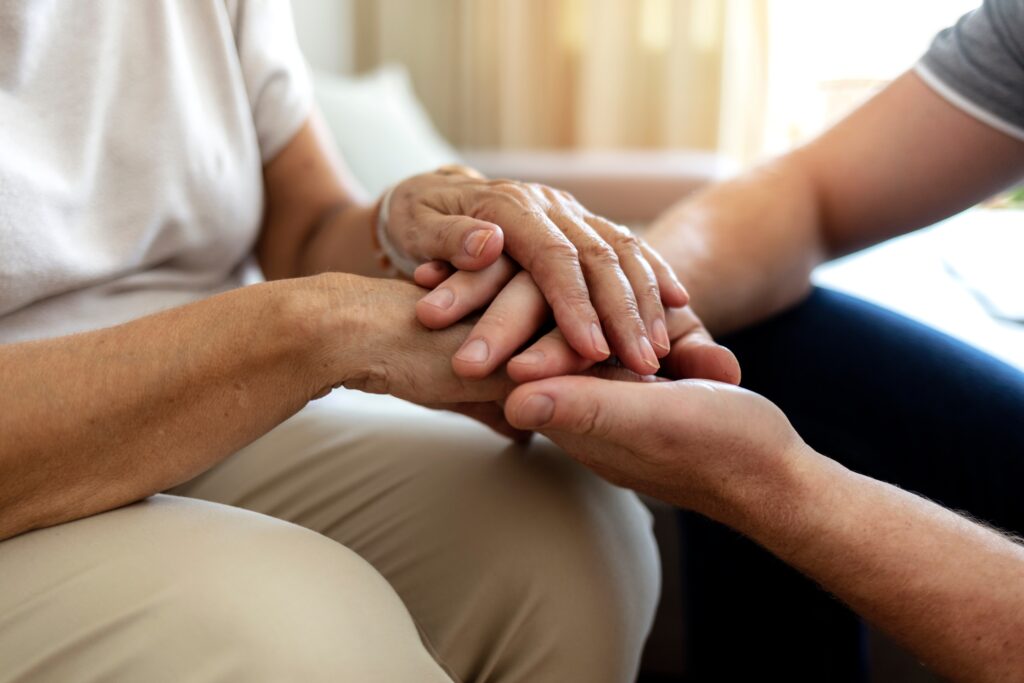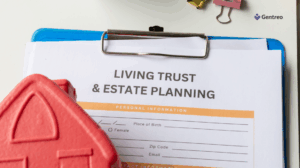
Losing a loved one is one of the most devastating experiences a person can go through. It can leave you feeling overwhelmed, sad, and completely unsure of what to do next. The following is a checklist to help guide you through the immediate aftermath of your loss and provide you with some practical steps to take.
Notify Close Family and Friends
Once you have confirmed the death, it is important to notify close family and friends as soon as possible. This can be done in person, over the phone, or through a trusted friend or family member. This initial step, though difficult, is crucial for sharing the news and starting the process of collective mourning and support.
Contact a Funeral Home
The next step is to contact a funeral home or check to see if your loved one had made arrangements through services like Gentreo. The funeral home will assist you with the arrangements for the funeral or memorial service, including choosing a casket, urn, or cremation, and selecting a burial or cremation site. If pre-arrangements were made, the funeral home will have records of your loved one’s wishes.
Obtain Death Certificates
You will need to obtain several certified copies of the death certificate. These certificates are necessary for settling the estate, closing bank accounts, and transferring any property. Often, if you use the services of a funeral home, they will obtain the certificates as part of their fees. Be sure to get multiple copies, as various institutions may require originals.
Gather Important Papers and Documents
It is important to gather all of your loved one’s important papers and documents, including their will, insurance policies, and financial statements. This will help the executor or personal representative with the process of settling the estate. Services like Gentreo can be instrumental in locating these documents if they were stored digitally.
File Necessary Claims
If your loved one had any insurance policies, it is important to file claims as soon as possible. You may also need to file claims with the government for any benefits that may be available, such as Social Security or veterans’ benefits. Promptly handling these claims can help mitigate financial stress during this challenging time.
Take Care of Yourself and Your Family
Losing a loved one can be an incredibly stressful and emotional time. It is important to take care of yourself and your family during this period. This may include seeking support from friends, family, or a therapist. Ensuring that you and your family members are eating well, getting enough rest, and taking time to grieve is crucial.
Plan a Memorial or Funeral Service
A memorial or funeral service is an important way to say goodbye to your loved one and to begin the healing process. If your loved one left information or a plan through services like Gentreo, directions are already there for you. If there is no plan, you may choose to have a traditional funeral service, a cremation, or a memorial service. Personalizing the service to reflect the life and preferences of your loved one can be a comforting tribute.
Consider Reaching Out for Help
Finally, it is important to consider reaching out for help if you need it. This may include seeking support from friends and family, a support group, or a grief counselor. Professional support can provide you with tools to navigate your grief and offer a safe space to express your emotions.
Handling Legal and Financial Matters
Notify Financial Institutions
Once you have the death certificate, you need to notify banks, credit card companies, and other financial institutions about your loved one’s passing. This will help in freezing accounts to prevent fraud and starting the process of transferring assets as per the will or legal guidelines.
Settle the Estate
If your loved one had a will, the executor will need to settle the estate according to the deceased’s wishes. This may involve distributing assets, paying off debts, and managing taxes. If there is no will, the estate will be settled according to state laws, which may require the appointment of an administrator.
Close Unnecessary Accounts
It’s important to close any accounts that are no longer needed. This includes email accounts, social media profiles, and subscriptions. For social media accounts, platforms like Facebook offer options to memorialize the account, preserving the memories and posts of your loved one.
Notify Employers and Associations
If your loved one was employed, you will need to notify their employer. This allows for the collection of any final paychecks, benefits, or life insurance policies provided by the employer. Additionally, if your loved one was a member of any professional or social associations, they should be informed as well.
Manage Property and Personal Belongings
Secure the Property
Ensure that your loved one’s home and any other properties are secure. This might involve changing locks and setting up regular checks to prevent break-ins or vandalism. If the property will be unoccupied, consider notifying the local police department.
Distribute Personal Belongings
Distributing personal belongings can be one of the most emotionally challenging tasks. It can be helpful to involve close family members in this process, taking the time to decide what to keep, what to donate, and what to discard. Creating a system or checklist can make this process smoother and less overwhelming.
Update Legal Documents
Change Beneficiaries
If your loved one was a beneficiary on your accounts or insurance policies, you will need to update this information. This ensures that your current wishes are reflected and that your future plans are clear.
Update Your Will
Losing a loved one can be a stark reminder of the importance of having your affairs in order. Take this time to review and update your own will and any other legal documents to reflect any changes in your life and wishes.
Seek Support and Counseling
Grief Counseling
Grief counseling can provide a valuable outlet for your emotions and help you process your loss. Many people find comfort in talking to a professional who can offer coping strategies and support during this difficult time.
Support Groups
Support groups bring together people who are experiencing similar losses. Sharing your experiences with others who understand what you’re going through can be incredibly healing. Look for local groups or online communities that focus on grief and loss.
Memorializing Your Loved One
Create a Tribute
Consider creating a tribute to your loved one. This could be a photo album, a memory box, or a digital slideshow. Celebrating their life and the moments you shared can be a powerful way to honor their memory.
Annual Remembrances
Establishing annual remembrances, such as visiting the gravesite on the anniversary of their passing or organizing a family gathering, can keep the memory of your loved one alive. These traditions can provide comfort and a sense of continuity.
Moving Forward
Take Time to Heal
Healing is a gradual process, and it’s important to give yourself the time and space you need. Everyone grieves differently, and there is no right or wrong way to mourn. Allow yourself to feel your emotions and seek support when needed.
Reconnect with Life
As you begin to heal, find ways to reconnect with life. Engage in activities you enjoy, spend time with loved ones, and take steps towards establishing a new routine. While life will never be the same, finding a new normal is an important part of the healing process.
Losing a loved one is never easy, but by following this checklist, you can help ensure that you are taking the necessary steps to honor your loved one’s memory and to take care of yourself and your family. Take your time and don’t be afraid to reach out for help. Remember that you are not alone, and that with time, you will heal and begin to find peace.
Navigate the difficult journey of loss with our detailed checklist. From notifying family to handling legal matters, find guidance and support for each step.
FAQs
1. How many death certificates should I obtain?
It is recommended to obtain at least 10-15 certified copies of the death certificate. Various institutions such as banks, insurance companies, and government agencies will require original copies.
2. What is the role of an executor?
The executor is responsible for managing the deceased’s estate, ensuring that debts are paid, and distributing assets according to the will. If there is no will, the executor follows state laws to settle the estate, this is called “intestate”.
3. How can I memorialize a loved one on social media?
Many social media platforms offer options to memorialize an account. This can be done by contacting the platform with the death certificate and proof of your relationship to the deceased. Gentreo offers other information on this as well in our resource section.
4. What should I do with my loved one’s digital assets?
It’s important to manage digital assets such as email accounts, social media profiles, and online subscriptions. These can often be closed or memorialized by contacting the service providers with the necessary documentation. Gentreo offers other information on this as well in our resource section.
5. Where can I find grief support groups?
Grief support groups can be found through local community centers, hospitals, and online platforms. Organizations such as the American Hospice Foundation offer resources and directories to find support groups.
Don’t wait until it’s too late; start your estate planning journey with Gentreo today. By doing so, you’ll not only protect your loved ones but also gain the peace of mind that comes with knowing your legacy is secure. Click here to join now. https://www.gentreo.com/
This article is for informational purposes only and should not be considered legal advice. Consult with a qualified attorney or estate planning professional for personalized guidance.










